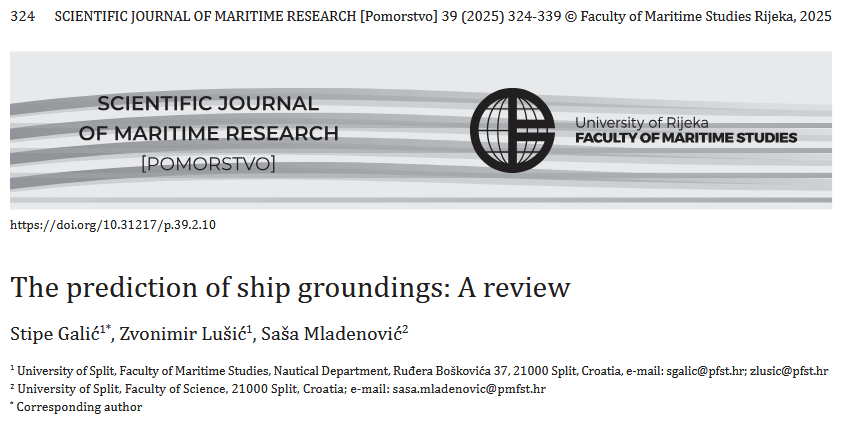The prediction of ship groundings: A review
Keywords:
Risk assessment models, Grounding prediction, Scientific databases, Ship grounding, Grounding frequencyAbstract
Ship grounding is one of the most common and devastating maritime accidents. This article aims to present a retrospective review of models used to estimate the frequency of such incidents. Given the increasing growth of maritime traffic, this is the type of maritime accident that today’s modern science should better address and present modern solutions to minimize such accidents. Numerous grounding risk assessment models have been developed throughout the history of maritime research, contributing significantly to the reduction of ship grounding incidents. However, while research and related models on this topic are abundant, they are often unstructured and fragmented, lacking detailed and comprehensive analysis necessary to clearly identify key shortcomings and areas for improvement. A thorough search of relevant databases was conducted to better capture academic articles and general publications addressing the estimation of ship grounding frequency. Using the bibliographic mapping capabilities of the VOSviewer software, the study identified research clusters related to grounding issues. The inclusion of bibliometric analysis enhances this article by providing a comprehensive overview of the literature and highlighting the researchers who have made the most significant contributions to the development of ship grounding assessment models—thus laying the groundwork for future advancements.

Downloads
Published
Issue
Section
Categories
License
Copyright (c) 2025 Stipe Galić, Zvonimir Lušić, Saša Mladenović

This work is licensed under a Creative Commons Attribution-NonCommercial-NoDerivatives 4.0 International License.
Scientific Journal of Maritime Research understands the need for authors to disseminate and maximize the impact of their research. When submitting an article for publishing in Scientific Journal of Maritime Research, it implies that the Corresponding Author transfers, with the consent of all Coauthors, the copyright ownership in the referenced submission, including all versions in any format now known or hereafter developed, to the Scientific Journal of Maritime Research.
Copyright protects your original work and research material and prevents others from using it without your permission. Others will be required to credit you and your work properly, thus increasing its impact. Should your submission be rejected or withdrawn prior to acceptance for publication by Scientific Journal of Maritime Research, this transfer will be null and void.
Authors, users or readers of an article need clear instructions on how they can use the article. Scientific Journal of Maritime Research uses the Creative Commons Attribution-NonCommercial-NoDerivatives (CC-BY-NC-ND) 4.0 International License, which governs the use, publishing and distribution of articles by authors, publishers and the wider general public.
The authors are allowed to post a digital file of the published article, or the link to the published article (Scientific Journal of Maritime Research web page) may be made publicly available on websites or repositories, such as the Author’s personal website, preprint servers, university networks or primary employer’s institutional websites, third party institutional or subject-based repositories, and conference websites that feature presentations by the Author(s) based on the published article, under the condition that the article is posted in its unaltered Scientific Journal of Maritime Research form, exclusively for non-commercial purposes.




